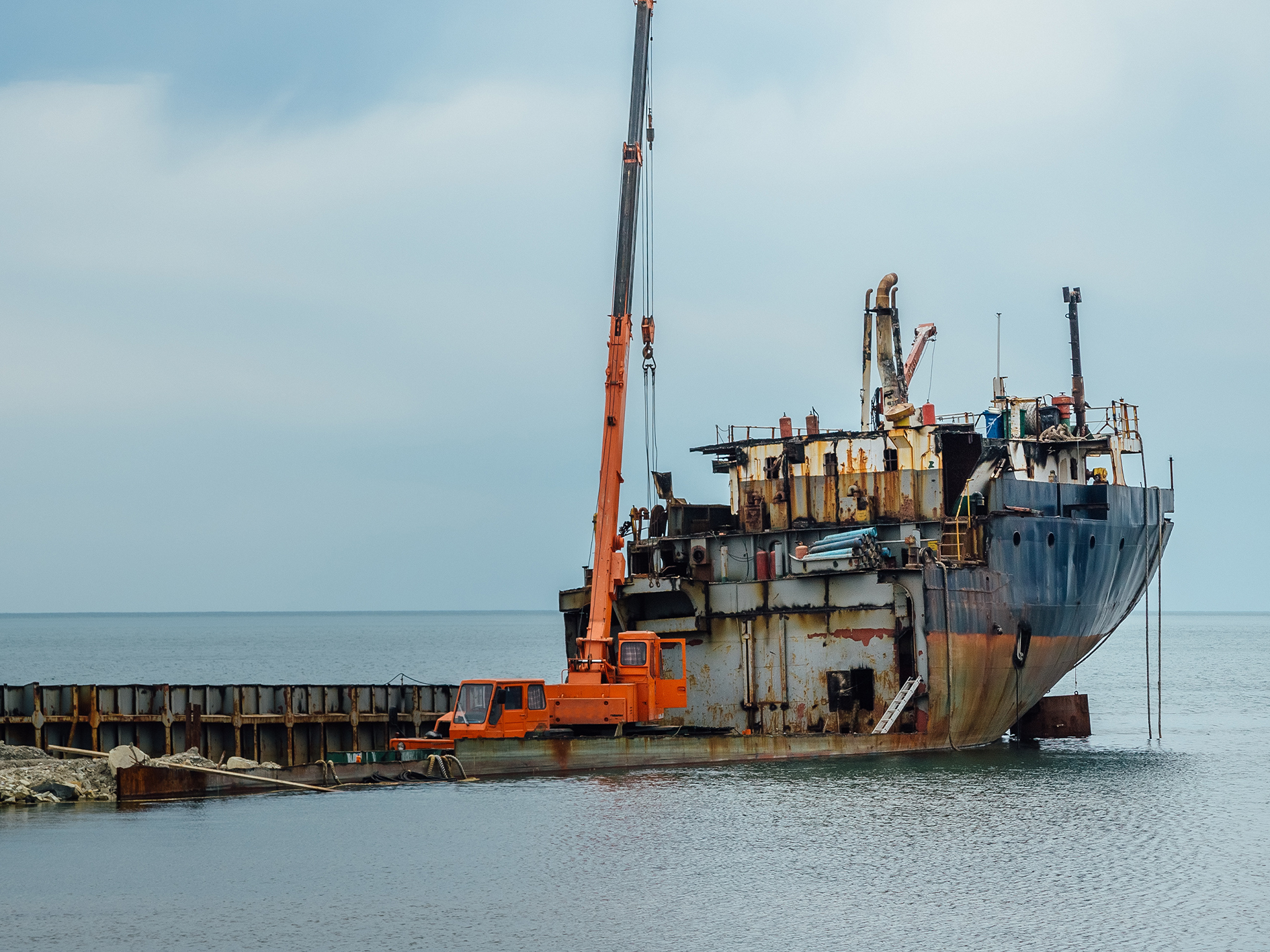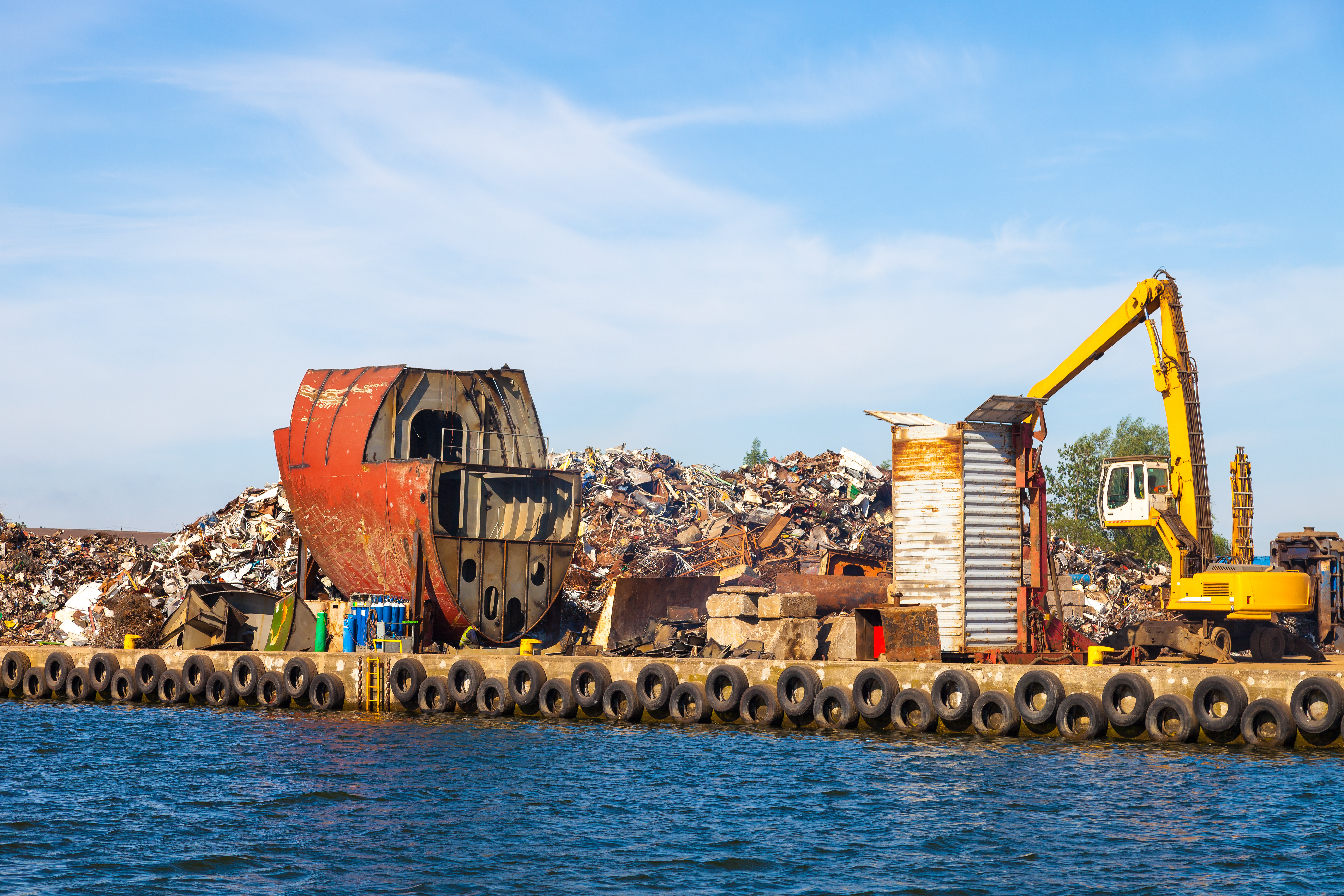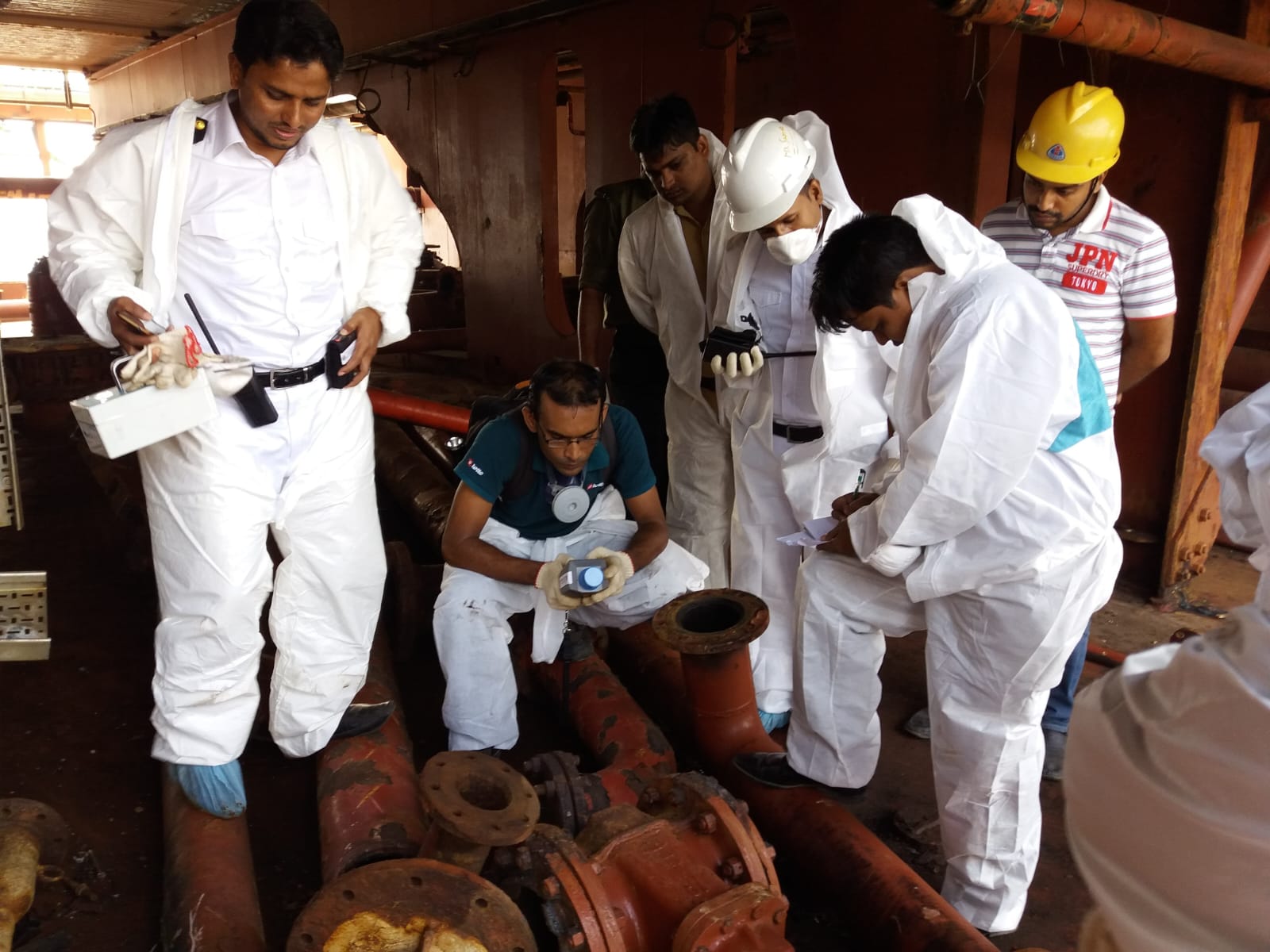Recycling of ships and the Hong Kong Convention
How the Hong Kong Convention will ensure safe and environmentally sound recycling of ships at the end of their operational lives

The Hong Kong International Convention for the Safe and Environmentally Sound Recycling of Ships (the Hong Kong Convention) will enter into force on 26 June 2025. Its aim is to ensure that ships at the end of their operational lives are recycled safely and without posing unnecessary risks to human health and the environment.
The date of the Hong Kong Convention’s entry into force was set in June 2023 when Bangladesh and Liberia became Contracting States to it. This marked the moment that all required criteria were met.
IMO has been working towards the introduction of universal global regulations on safe and environmentally sound ship recycling for more than two decades. The first Guidelines on Ship Recycling were adopted by the IMO Assembly in late 2003.

The video below outlines the need for universal ship recycling regulations and how IMO is helping Member States improve the environmental and safety standards in their ship recycling industries in line with the requirements of the Hong Kong Convention.
What is ship recycling?
Ships are recycled when they reach the end of their operational lives. Safe recycling processes are vital to ensure the careful and secure handling of environmentally hazardous substances such as asbestos, heavy metals, hydrocarbons and ozone-depleting substances.
When conducted correctly, ship recycling embraces the "cradle to grave" concept: it sees almost all materials and equipment used in the manufacture of a ship re-used in other forms, an outcome which is both environmentally sound and energy efficient. For instance, using recycled steel requires just one third of the energy used in the manufacture of steel from raw materials.
While the principle of ship recycling is sound, the working practices and environmental standards in ship recycling facilities varies from yard to yard. Global regulation will ensure safe working practices for those employed in ship recycling yards, along with consistent environmental standards.
What is the Hong Kong Convention?
The Hong Kong International Convention for the Safe and Environmentally Sound Recycling of Ships (the Hong Kong Convention) was adopted at a diplomatic conference held in Hong Kong, China, in 2009.
The Hong Kong Convention addresses all environmental and safety aspects relating to ship recycling by placing responsibilities and obligations on all parties concerned – shipowners, ship building yards, ship recycling facilities, flag States, port States, and recycling States - regarding the responsible management and disposal of associated waste streams in a safe and environmentally sound manner.
Regulations in the Convention cover the design, construction, operation and preparation of ships to facilitate safe and environmentally sound recycling of vessels, and the establishment of an appropriate enforcement mechanism for ship recycling, incorporating certification and reporting requirements.
When will the Hong Kong Convention enter into force?
The Hong Kong Convention will enter into on 26 June 2025, i.e. 24 months after the entry-into-force conditions were met in June 2023. Read more.

What must ship recycling yards do to be compliant with the Hong Kong Convention?
Ship recycling facilities/yards must be authorized and must prepare a Ship Recycling Facility Plan, addressing worker safety and training; protection of human health and the environment; roles and responsibilities of personnel; emergency preparedness and response; and monitoring, reporting and record-keeping systems, taking into account IMO guidelines.
Before a ship can be recycled, the ship recycling facility must provide a Ship Recycling Plan which is specific to each vessel that is to be recycled. It must specify the way an individual ship will be recycled, depending on its particulars and its inventory.
Governments will be required to ensure that recycling facilities under their jurisdiction comply with the Hong Kong Convention.
What must ships do to comply with the Convention?
Under the Hong Kong Convention ships must have on board an Inventory of Hazardous Materials specific to each ship, which must be prepared and verified in line with IMO guidelines.
Following that initial verification survey, ships will be required to have additional surveys during the life of the ship, and a final survey prior to recycling.

What is IMO doing to support effective implementation of the Hong Kong Convention?
Since the adoption of the Hong Kong Convention, IMO’s Marine Environment Protection Committee has developed and adopted all guidelines required by the Convention. They cover:
- Development of the Ship Recycling Plan;
- Development of the Inventory of Hazardous Materials;
- Safe and environmentally sound ship recycling;
- Survey and certification of ships;
- Inspection of ships; and
- Authorization of ship recycling facilities.
These are deemed critical to early, voluntary implementation of the Convention's provisions, ahead of its entry into force.
Almost all ship recycling worldwide is carried out in five countries: Bangladesh, China, India, Pakistan and Türkiye. Three of these are Parties to the Hong Kong Convention (Bangladesh, India and Türkiye).
IMO is working with recycling countries to help build the capacity and establish the conditions that will enable them to ratify/accede to the Hong Kong Convention. It is a complex issue, often involving many different ministries and industry groups.
An example of IMO supporting countries to reach the point where they are ready to accede to the Convention is the “Safe and Environmentally Sound Ship Recycling in Bangladesh” project (SENSREC Project - Bangladesh). Bangladesh is one of the world's largest ship recycling countries by capacity.
The SENSREC Project has been funded by Norway since 2015 and has been implemented by IMO in a phased manner. It has helped Bangladesh to improve its ship recycling standards and has facilitated the country's accession to the Hong Kong Convention.
Through the initiative, the key implementing partners - the Ministry of Industries and the Bangladesh Ship Breakers and Recyclers Association (BSBRA) - have developed a strong sense of ownership in greening ship recycling. Project activities have focused on developing a comprehensive understanding of the challenges and opportunities within the industry amongst workers, yard owners and other stakeholders.
Phase I included economic and environmental studies on ship recycling in Bangladesh, the development of training materials and capacity building plans, and a preliminary design for recycling infrastructure in the country.
Phase II established an institutional and legal roadmap towards ratification, and saw the training of 900 shipyard workers, skilled professionals and other key stakeholders. Other Phase II activities include a focus on boosting the economic participation of women in the ship recycling industry.
Phase III is designed to provide further support to Bangladesh in complying with the Hong Kong Convention by focusing on technical assistance towards the establishment of Treatment, Storage, and Disposal Facilities, as well as analysis of further investment needs required for the recycling yards.
What guidelines exist to support Member States with implementation?
The following guidelines have been developed and adopted to assist States in the implementation and enforcement of the Convention’s technical standards:
- 2011 Guidelines for the Development of the Ship Recycling Plan, adopted by resolution MEPC.196(62);
- 2012 Guidelines for Safe and Environmentally Sound Ship Recycling, adopted by resolution MEPC.210(63);
- 2012 Guidelines for the Authorization of Ship Recycling Facilities, adopted by resolution MEPC.211(63)
- 2012 Guidelines for the survey and certification of ships under the Hong Kong Convention, adopted by resolution MEPC.222(64); and
- 2012 Guidelines for the inspection of ships under the Hong Kong Convention, adopted by resolution MEPC.223(64).
- 2023 Guidelines for the development of the Inventory of the Hazardous Materials, adopted by resolution MEPC.379(80).
- 2024 Provisional guidance on the implementation of the Hong Kong and Basel Conventions with respect to the transboundary movement of ships intended for recycling (HKSRC.2/Circ.1).